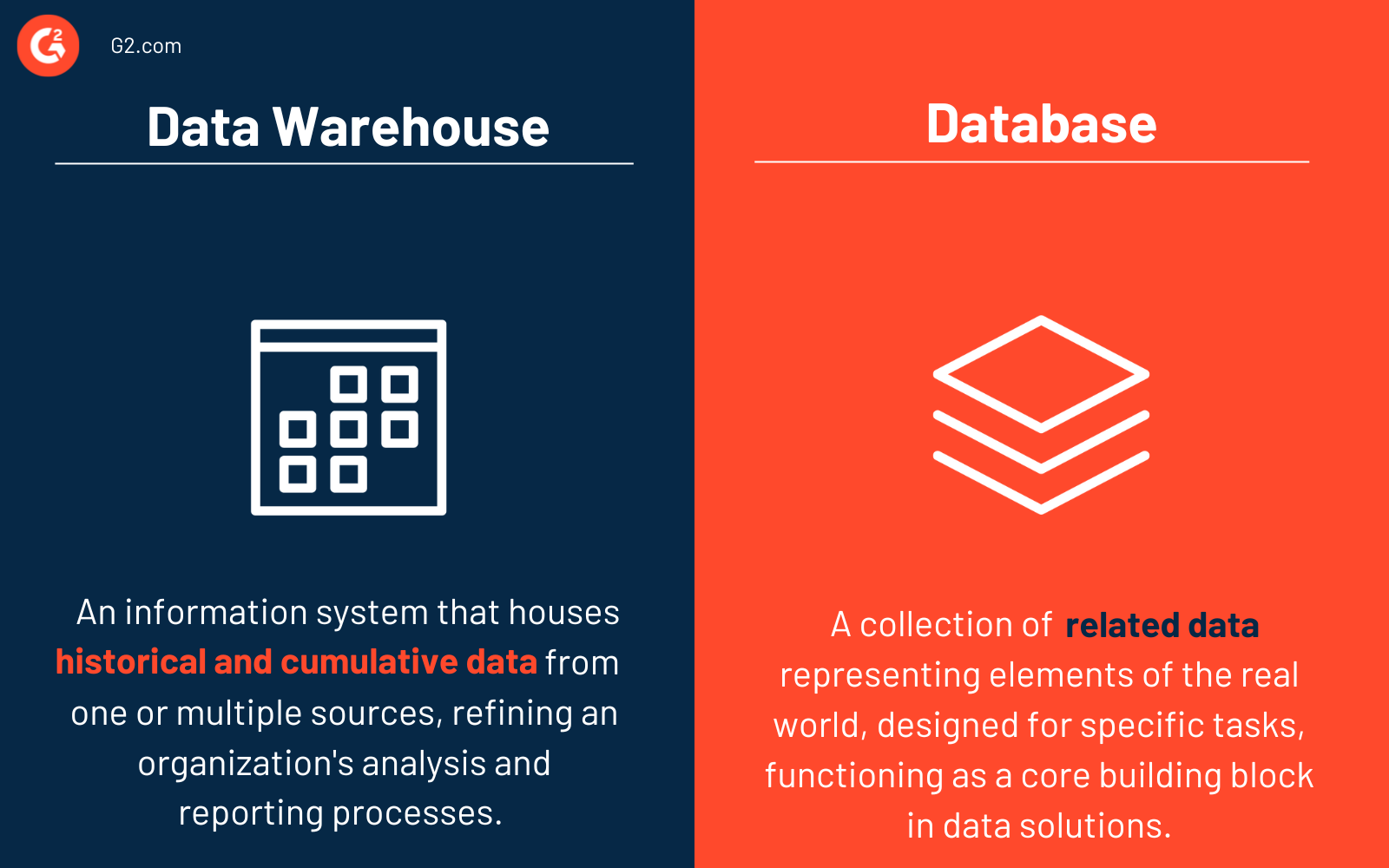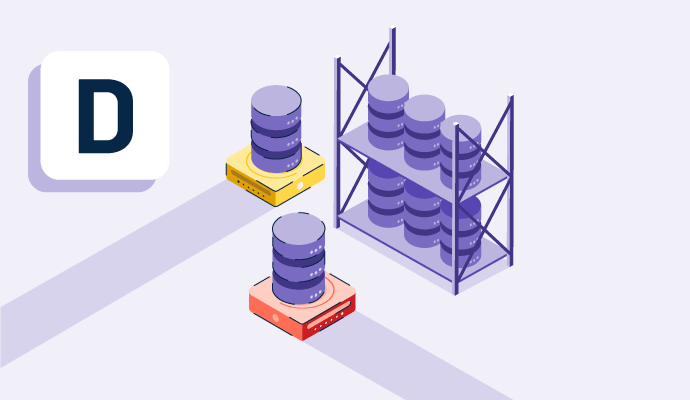What is a data warehouse?
A data warehouse is a central repository that stores data from multiple sources. It processes and transforms data for analysis while supporting business decision-making.
The presence of a data warehouse is one of the core components of business intelligence. It reduces input and output (I/O) and swiftly delivers queries to address several user questions simultaneously.
Organizations look to data warehouse solutions to combine data from customer relationship management (CRM) software, enterprise resource planning (ERP) tools, marketing automation platforms, and various other sources. It provides the necessary business intelligence (BI) to make effective decisions.
Types of data warehouses
Below are some significant components of data warehouses organizations use to make sense of data from disparate sources.
- Enterprise data warehouses offer decision-support services to the entire company. They often comprise several databases that provide a consistent method for classifying and arranging data by subject.
- Operational data store (ODS) is used for operational reporting. It’s suitable for routine tasks such as keeping employee records.
- A data mart is a subset of a data warehouse typically dedicated to a specific team or business line, such as finance or sales.
Benefits of a data warehouse
A data warehouse stores, analyzes, and derives value from vast data while retaining it for record-keeping. Some of the benefits of data warehousing in an organization include:
- Improved business analytics. Data warehouses are essential for every firm to store and analyze its historical data and records. It can improve the company's awareness or data analysis even further.
- Quicker queries. Since data warehouses are built to handle big questions, they execute queries more quickly than databases do.
- Enhanced data quality. The data collected from various sources is saved and analyzed in the data warehouse. It doesn’t replace or add data on its own, maintaining data quality.
- Access to historical information. A data warehouse keeps all historical information so users can access it whenever needed to extract insights.
Characteristics of a data warehouse
The characteristics of a data warehouse make it different from other database management systems. Below are some notable data warehouse characteristics.
- Subject-oriented. The focus of the data warehouse is on modeling and analysis of data. It offers a distinct perspective on a specific topic, such as a customer, a product, or sales, rather than the ongoing operations of the entire firm.
- Integrated. A data warehouse can integrate diverse data sources such as a relational database, online transaction records, and flat files.
- Time variant. A data warehouse is typically used to store historical data. For example, a data warehouse can access files from the last quarter, data from six to twelve months prior, or even more extended periods.
- Nonvolatile. This means data shouldn't change after being stored in a warehouse. The data warehouse is an independent storage location. The data warehouse doesn’t perform update, insert, or delete operations on data, i.e., operational data updates don’t happen.
Data warehouse use cases
Data warehouses operate as a central repository where data is collected. The following are some ways businesses use them.
- Driving actionable insights. Data warehouses present actionable information to non-technical users in a simple way, facilitating decision-making.
- Archiving historical data. A data warehouse is necessary to archive historical,time-variable data. Organizations benefit as they can access data in the future.
- Ensuring data quality and consistency. Users can ensure data is uniform and consistent when a data warehouse combines it in a single repository.
- Achieving high response time. Data warehouses have higher response times and flexibility because they’re well-equipped to face unexpected loads and queries.
Data warehouse vs. database
Both databases and data warehouses play crucial roles but serve different purposes.

At a foundational level, a data warehouse is an information system that houses historical and cumulative data from one or multiple sources, refining an organization's analysis and reporting processes.
Data warehouses are tailored for large-scale business queries demanding in-depth data analytics. Compared to databases, data warehouses typically support fewer users. These systems prioritize complex queries spanning multiple large datasets.
On the other hand, a database is a collection of related data representing elements of the real world. It is designed for specific tasks and functions as a data solutions' core building block.
Databases can handle thousands of users simultaneously, making them invaluable for small, atomic transactions. Speed is of the essence here; databases are meticulously optimized for rapid create, read, update, and delete (CRUD) operations. To gain this efficiency, databases prevent redundancy – data doesn't duplicate across multiple tables.
Learn more about structured and unstructured data and discover how organizations store it.

Sagar Joshi
Sagar Joshi is a former content marketing specialist at G2 in India. He is an engineer with a keen interest in data analytics and cybersecurity. He writes about topics related to them. You can find him reading books, learning a new language, or playing pool in his free time.
